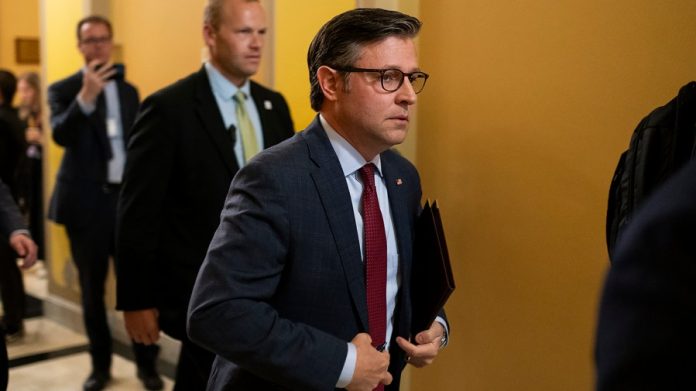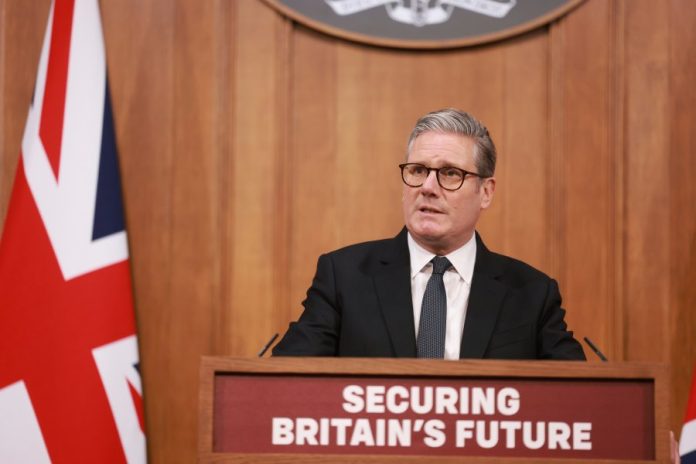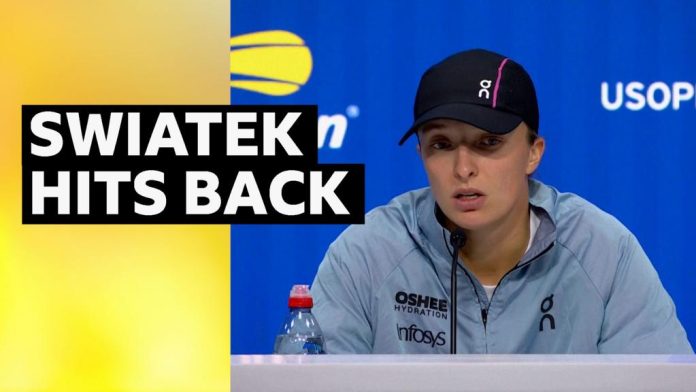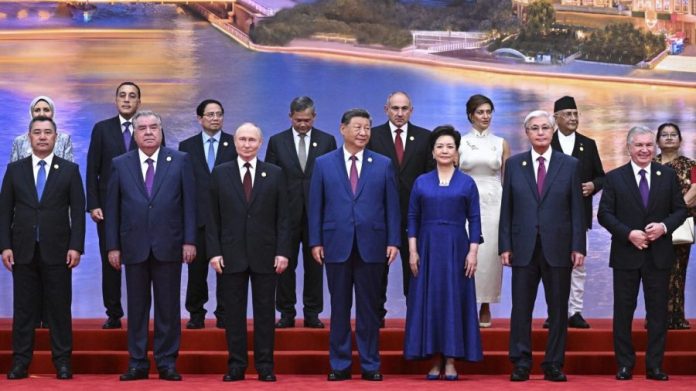
The tectonic plates of global power are shifting. The American-led postwar order is eroding without a clear successor. In this uncertain interregnum, there is a growing risk of the world fracturing into rival geopolitical and economic blocs, threatening both prosperity and peace.
Two recent events in China encapsulate this transformation. On Aug. 31 to Sept. 1, leaders gathered in Tianjin for the annual summit of the Shanghai Cooperation Organization, a 10-nation grouping that began as a regional security forum but has steadily expanded its scope and ambition. With China in the driver’s seat, the group is made up mostly of autocracies.
Soon after, on Sept. 3, China staged a massive military parade in Beijing to commemorate the end of the Sino-Japanese War and World War II. Yet far from celebrating peace, the event showcased Chinese military might, with a guest list that read like a who’s who of the world’s strongmen. They included Russian President Vladimir Putin, North Korea’s Kim Jong-un, Myanmar junta chief Min Aung Hlaing, and the presidents of Iran, Cuba, Belarus and Vietnam. They make up the so-called “Axis of Upheaval” — a loose coalition of states determined to reshape the Western-led global order.
The juxtaposition was telling. The summit highlighted how Beijing and Moscow are institutionalizing their strategic alignment, while the military parade underlined the solidarity of a growing authoritarian camp. For China and Russia, the Shanghai Cooperation Organization serves as both a symbol and an instrument of their deepening cooperation — from joint military exercises to efforts at shaping the economic and security architecture of Eurasia.
For Washington and its allies, these gatherings sent a clear signal: An alternative power bloc is taking shape.
President Trump is accelerating the reordering of the international system, though not in the way he believes. Trump may think he is bending nations to his will, but history could record something else: the corrosion of America’s alliances and partnerships, the erosion of its credibility and the acceleration toward a truly multipolar world. By elevating disruption into his governing creed, Trump is unwittingly providing the very shock therapy the international system needs to break free from U.S. dominance.
This geopolitical realignment is mirrored in the economic sphere. Globalization, once seen as irreversible, has stalled and may even be going into reverse. Protectionist policies are proliferating.
Washington has turned to tariffs, subsidies and secondary sanctions to advance its geopolitical ends. Beijing is promoting yuan-based settlement mechanisms and alternative supply chains, while procuring gold at a voracious pace to insulate itself from Western financial pressure, including potential sanctions.
What is emerging is not a single global marketplace but a patchwork of rival trading and financial blocs.
The consequences are already visible. The U.S. push to “de-risk” supply chains has triggered costly reshoring and diversification strategies. Technology is splitting into parallel ecosystems. Energy markets, too, are fragmenting, with Russian oil and gas exports largely shifting from Europe to Asia. In finance, competing payment systems are gaining traction, threatening to erode the central role of the U.S. dollar.
At the same time, the spread of armed conflicts shows how economic and geopolitical fractures feed on each other. In recent years, the number of wars and crises has risen, each with ripple effects on energy prices, supply chains and refugee flows.
The turbulence reflects a world in transition: the slow decline of the U.S.-led order without the emergence of a stable successor. It is the dawn of a new era — fractured, fiercely contested and dangerously unpredictable.
This moment echoes the 1930s — not in its specifics, but in its warning. Then, a world system changing between orders witnessed the emergence of competing economic blocs, fueling nationalist rivalries that eventually erupted into global war. The challenge today is not merely to manage competition, but to prevent economic, technological and ideological fragmentation from spiraling into chaos. That requires leadership, restraint and imagination — qualities in short supply.
In this environment, much will depend on how “swing states” position themselves. A recent report by the Center for a New American Security identified six such states as pivotal to the emerging global order: Brazil, India, Indonesia, Saudi Arabia, South Africa and Turkey. Each is multi-aligned, seeking to balance ties with the U.S., China and Russia rather than choosing sides. Collectively, they wield the ability to influence whether the world fragments into hostile blocs or maintains a degree of pluralism and connectivity.
India is perhaps the most critical of these nations. As the only long-established democracy in the Shanghai Cooperation Organization, it is trying to prevent the grouping from acquiring an overtly anti-Western orientation, even as it participates in Western-led forums such as the Quad and, as a special invitee, the Group of 7.
Brazil, like India, is charting an independent course on trade and climate, while Saudi Arabia and Turkey are expanding ties eastward without severing links to the West. These countries demonstrate that the binary framing of “democracies versus autocracies” does not reflect the real complexity of international politics.
The danger, however, is that intensifying U.S.-China rivalry could reduce the room for maneuver for such states. If Washington sharpens its protectionist edge while Beijing doubles down on its authoritarian partnerships, the middle ground will narrow. Economic and security fragmentation could harden into a bipolar structure — two camps with little trust, minimal cooperation and heightened risk of confrontation.
That outcome is not inevitable. But preventing it will require conscious effort. Multilateral frameworks must be strengthened, not abandoned. Global cooperation — on climate change, pandemic preparedness, food security and technology standards — must be preserved despite geopolitical tensions. Above all, great powers must recognize that fragmentation carries grave risks not just for growth but for stability.
The world has been here before. The lesson of the 20th century is that when trade and politics fracture into competing blocs, confrontation follows. Unless today’s drift is reversed, the coming decade may bring not just the end of globalization, but the return of bloc-driven conflict.
Brahma Chellaney is the author of nine books, including the award-winning “Water: Asia’s New Battleground.”


















